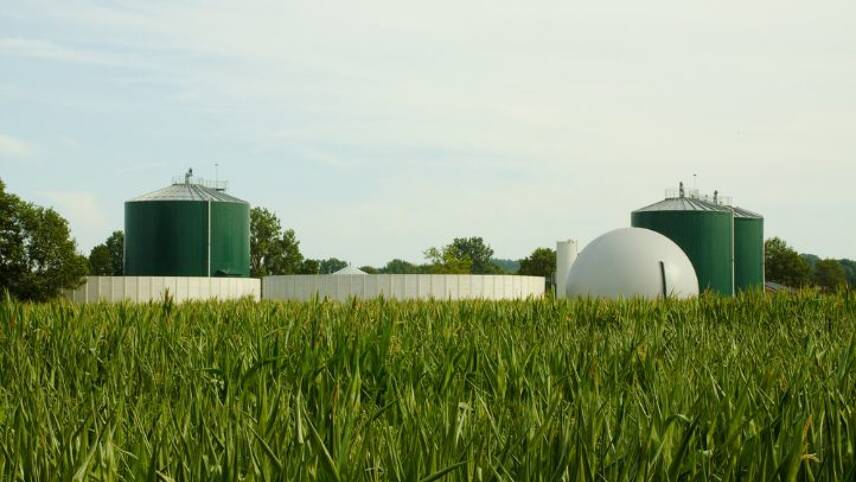Register for free and continue reading
Join our growing army of changemakers and get unlimited access to our premium content

Bioenergy currently accounts for 7.4% of the UK energy mix
That is the key call to action in a new report published today (5 September) by the Renewable Energy Association (REA).
According to the report, bioenergy, which currently represents 7.4% of the UK’s primary energy supply mix, must play a “crucial” role in decarbonisation as sectors such as transport and heavy industry rely increasingly on electrified technologies and systems.
These challenges in increased electricity demand, the REA notes, will be compounded by the phase-out of coal generation plants and the so-called “nuclear gap”. Of the eight nuclear generation points currently based in the UK, which collectively account for around one-fifth of primary power supply, seven are set to close by the end of 2030.
According to the REA report, the most cost-effective and low-carbon way in which to approach these interlinked issues is to double bioenergy deployment through to 2032, adding 117 TWh. The document claims that doing so would see up to 80 million tonnes of CO2 removed from the atmosphere annually.
In order to deliver this increase, the report urges Ministers to place an obligation on gas suppliers to blend in a minimum amount of renewable gas – as touted in the 2018 Autumn Statement – and to develop a replacement for the Renewable Heat Incentive (RHI). The RHI was set up in 2011 to encourage businesses and more recently homes to switch from fossil fuel heating systems to renewable and low-carbon alternatives such as biomass boilers and heat pumps. However, the National Audit Office (NAO) has suggested that the system has “not achieved value for money“.
The REA claims that a more well-designed replacement, in the form of an auction mechanism like Contracts for Difference (CfD), would “kick-start the market for capturing and storing carbon”.
“Time and time again, the current and potential role that bioenergy plays in the energy system has been overlooked by Ministers and government officials leading to it being deprived of the support it deserves,” the REA’s chief executive Nina Skorupska said.
“Bioenergy is the backbone of the renewables revolution providing all-important dispatchable power and the most advanced solution to meeting the demands of heat and transport.”
Growing support
The REA report comes shortly after a special publication from MPs on the Science and Technology Committee warning that the UK isn’t remotely close to reaching upcoming carbon budgets up to 2032 – partly due to concerns around renewable energy for heating, cooling and transport.
Specifically, the report criticised the Government for effectively excluding onshore wind and large-scale solar arrays from CfD auctions; closing the RHI without implementing a replacement and delaying the publication of its White Paper on ‘The future of the energy market’.
These concerns were echoed by the likes of the Solar Trade Association (STA), Ground Source Heat Pump Association and Energy Networks Association as well as the REA. And, according to recent research by Element Energy and Cambridge Econometrics, these issues are not unique to the UK, with similar green policy challenges in existence across Europe.
In response to the issue in the UK, the trade body representing the UK’s liquefied petroleum gas (LPG) industry recently unveiled a new vision of helping the sector transition to 100% biofuel by 2040.
And, this week, leaders from the global biomass sector have launched a new campaign urging UK Ministers to “specify biomass as the most proven solution for addressing heat decarbonisation, especially in rural areas”.
Called the ‘Biomass Heat Works!’ campaign and led by the UK Pellet Council (UKPC) and the Wood Heat Association (WHA), the campaign calls for the creation of an RHI replacement which prioritises biomass, both for domestic and industrial use.
Mark Lebus, Chair of the UK Pellet Council, explained, “Time is running out and this latest report backs our call for the Government to fully support and invest in the UK’s biomass heat industry. Ministers need to address the heat decarbonisation issue here and now, and enable the most effective, commercially ready and proven, low carbon solution, ie biomass, to play an integral role in delivering their objectives and reducing carbon emissions.
“The biomass heat industry supports circa 700+ supply chain companies and this must be protected, especially in rural communities where biomass can create a workable circular economy across farming, agriculture and forestry sectors. It is often the most viable and lowest carbon option available to businesses and households in off-gas grid areas,” UK Pellet Council chairman Mark Lebus said.
“By extending the RHI… we can maintain industry growth and momentum, create further employment stability, stimulate an extra 150MW of thermal capacity annually, and provide certainty amongst consumers as carbon pricing and fossil fuel duties take effect. The Government cannot afford to simply let this drop off a cliff edge.
Sarah George


Please login or Register to leave a comment.